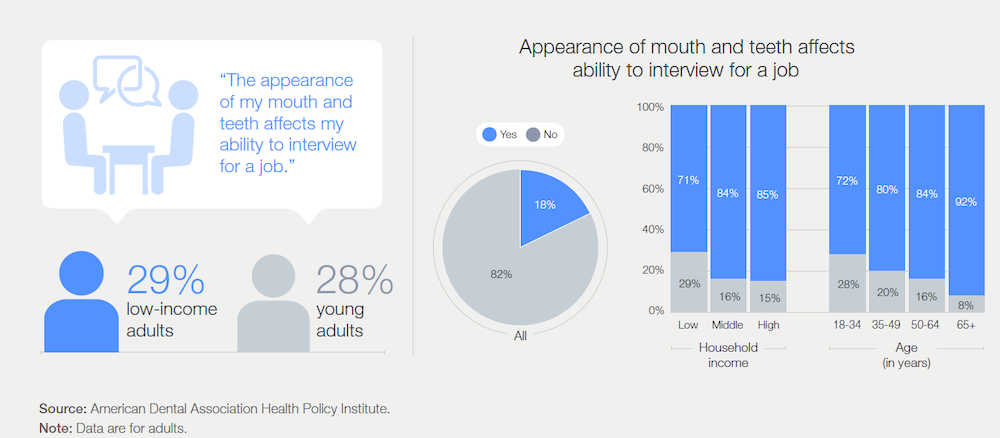Report makes economic case for investing in oral health
Oral diseases lead to $710B in treatment costs, productivity losses worldwide each year


Investing in oral health not only improves overall health outcomes but also leads to economic growth, according to a new World Economic Forum report released May 23.
The report, “The Economic Rationale for a Global Commitment to Invest in Oral Health,” demonstrates how a lack of investment in oral health globally has created a significant health crisis and placed an economic burden on many governments, businesses and individuals. It was published in collaboration with the American Dental Association, Colgate-Palmolive Company and Henry Schein Inc.
“We are paying an economic penalty for neglecting oral health,” said Marko Vujicic, Ph.D., chief economist and vice president of the ADA Health Policy Institute and the lead author of the report.
Oral diseases affect about 3.5 billion people annually and lead to an estimated global economic burden of more than $710 billion in treatment costs and productivity losses each year. Vulnerable populations worldwide are disproportionately paying the substantial economic penalty associated with unmet oral health needs, including in the job market, according to the report.
Those who suffer from oral diseases are at higher risk of developing other severe illnesses such as diabetes, stroke, heart and respiratory diseases, and cancer. The report calls for public-private collaboration to accelerate investment in oral health, stressing it would also boost overall health outcomes. In particular, better oral health has been associated with improved outcomes for pregnant people and people suffering from heart disease, respiratory disease, diabetes, dementia and arthritis.
“The evidence is overwhelmingly clear: an investment in oral health is an investment towards a productive workforce and a healthy society overall,” said Shyam Bishen, Ph.D., head of the World Economic Forum Centre for Health and Healthcare. “Immediate action is needed from all sectors to address the growing burden of oral diseases.”
Presenting the economic rationale for a global commitment to invest in oral health, the report explores the roles of various stakeholders in improving oral health. It outlines key measures for consideration, including:
• Integration of oral health within public health insurance programs and benefits packages by governments as part of universal health coverage policies.
• Expanded coverage for oral health care services by businesses in their employer-provided health insurance programs.
• Inclusion of oral health when multilateral organizations, such as the World Economic Forum and World Health Organization, discuss strengthening health systems.
• Philanthropic investment in oral health activities by civil society organizations to help strengthen their countries’ health systems.
The World Economic Forum is an international not-for-profit organization that encourages public-private cooperation to shape global, regional and industry agendas. The forum launched the Oral Health Affinity Group in 2023 under its Global Health Equity Network, a group of more than 50 companies committed to advancing health equity to create stronger and more productive societies.
The Oral Health Affinity Group, which Dr. Vujicic co-chairs, brings together leaders from sectors and industries, highlights the impact of poor oral health on health outcomes and the global economy and recommends actions governments and companies can take to advance global oral health. Following the report findings, the group will work with partners to accelerate public-private partnerships and investment to improve oral health globally.



